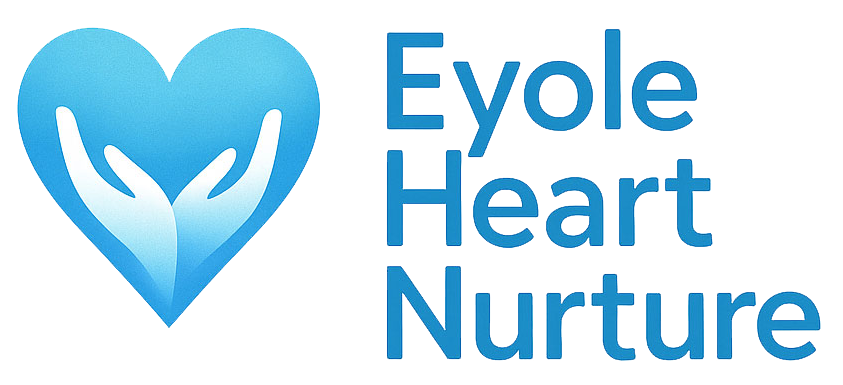The immune system is designed to protect you by identifying and eliminating foreign invaders like bacteria and viruses. However, after a heart transplant, where a surgeon replaces your failing heart with a healthy donor heart, this defense mechanism can misfire. The immune system may perceive the new heart as a foreign object and launch an attack.
“After my transplant, joy filled my days—until irregular heartbeats and fatigue crept in, “ Obina said.
Doctors explain that your body may see the donor heart as a foreign object and attack it, a condition known as heart transplant rejection, most common in the first few weeks but possible months or years later, per the Cleveland Clinic. At EyoleHeartNurture.com, we offer support—take our free heart test today.
What Causes Heart Transplant Rejection?
Rejection can occur even in a well-functioning immune system. Non-adherence to antirejection medications is a known trigger, though many patients experience rejection despite compliance, with the exact reason remaining unclear.
The most prevalent form, acute cellular rejection, typically occurs within the first 3 to 6 months post-transplant, driven by T-cells targeting the donor heart’s cells. A less common type, humoral rejection (or acute antibody rejection), can emerge within the first month or even years later, with antibodies damaging blood vessels, including coronary arteries, potentially impairing blood flow. Chronic rejection, such as coronary artery vasculopathy, involves the thickening of blood vessel linings, reducing oxygen and nutrient supply to the heart muscle over time.
Who Is at Risk for Heart Transplant Rejection?
Risk factors for both acute and chronic rejection include a genetic mismatch between donor and recipient, with younger recipients facing higher risks. Specific factors for acute rejection include the time post-transplant (highest risk several weeks after), female recipients or donors, and African-American recipients. Chronic rejection risks are elevated by high cholesterol, cytomegalovirus infection, older donors, male donors, younger recipients, prior acute rejection, coronary heart disease in either party, and insulin resistance.
What Are the Symptoms of Heart Transplant Rejection?
Symptoms of acute rejection may include tiredness, fever, shortness of breath, irregular heartbeat, low blood pressure, swelling in the extremities, sudden weight gain, flu-like aches, reduced urine output, dizziness, nausea, or loss of appetite. Often, rejection occurs without noticeable signs, detected early through rigorous post-transplant screening, underscoring the importance of follow-up visits. Cedars-Sinai notes that ejection can lead to complications, such as arrhythmia… failure of the new heart [or] heart attack, a reality that tested Obinna’s faith as prayer became his refuge amidst the fear.
How Is Heart Transplant Rejection Diagnosed?
Diagnosis begins with a health history review, physical exam, and blood tests. Acute rejection is often confirmed via heart biopsy, a routine post-transplant procedure to detect rejection before symptoms arise. Blood tests may identify rejection-related gene expressions. Additional tests like electrocardiograms, echocardiograms, Doppler echocardiography, coronary angiography, intravascular ultrasound, and cardiac stress testing help assess heart function and diagnose chronic rejection by examining blood vessels.
How Is Heart Transplant Rejection Treated?
Treatment varies based on rejection severity, symptoms, current medications, and type. For acute cellular rejection, options include increasing or adjusting antirejection medication doses, switching drugs, or adding immunosuppressants like prednisone, with severe cases requiring intravenous treatment. Humoral rejection may involve plasmapheresis to remove harmful antibodies or photophoresis to treat white cells. Chronic rejection might necessitate higher medication doses, angioplasty, or surgery for blocked arteries, with rare cases requiring a retransplant. A heart-healthy lifestyle can mitigate chronic rejection risks. Post-treatment, close monitoring with follow-up tests is essential.
What Are Possible Complications of Heart Transplant Rejection?
Rare complications include new heart failure, heart rhythm issues that may lead to sudden death, or a heart attack.
What Can You Do to Prevent Heart Transplant Rejection?
Reduce rejection risk by taking medications as prescribed, maintaining a supply, monitoring weight, blood pressure, pulse, and temperature, attending all appointments, completing tests promptly, reporting symptoms immediately, and following a heart-healthy lifestyle—exercise, healthy diet, no tobacco or excessive alcohol, and updated vaccines.
Living With a Heart Transplant
Your healthcare provider may recommend a healthy lifestyle, including a heart-healthy diet, exercise, avoiding tobacco and excessive alcohol, and maintaining a healthy weight. Additional heart medications for cholesterol, blood pressure, or glucose management may also lower chronic rejection risks. Follow provider instructions for home or public precautions.
When to Contact Your Doctor
Contact your transplant team immediately if you notice rejection signs or feel unwell, rather than waiting for your next appointment.
Key Points About Heart Transplant Rejection
- Rejection is common post-heart transplant, manifesting as acute or chronic, with the immune system attacking the donor heart.
- Adhering to medical advice reduces rejection risk and aids early detection.
- Recognize potential symptoms and report them promptly.
- Ongoing monitoring is critical, with rejection risk decreasing over time but never eliminated, requiring lifelong antirejection medication.
- These medications suppress immunity, increasing infection risk, and may necessitate additional treatments.
- Treatment often involves adjusting or adding medications, with lifestyle changes supporting heart health.
Start Your Healing Journey Today
Don’t face rejection alone—seek care and faith. Take the free heart test at EyoleHeartNurture.com now and embrace a stronger future. Your heart deserves it.
Frequently Asked Questions
- What Are Signs of Heart Rejection?
Signs of heart rejection include fatigue, irregular heartbeat, swelling, or shortness of breath, per the Cleveland Clinic. - What Are the 4 Types of Rejection?
Types are hyperacute, acute, chronic, and antibody-mediated, as outlined by Cedars-Sinai. - What Happens When Your Body Rejects Your Heart?
The immune system attacks the donor heart, potentially causing arrhythmia or failure, notes the Cleveland Clinic. - How Common Is Heart Rejection?
Rejection occurs in 20-30% of patients within the first year, according to Cedars-Sinai data. - What Are the Early Signs of Rejection?
Early signs of rejection include mild fatigue, fever, or palpitations, detectable with regular monitoring. - What Are the Complications of Rejection?
Complications of rejection include arrhythmia, heart failure, or heart attack, as highlighted by Cedars-Sinai. - How to Resolve Rejection?
Resolution involves adjusting immunosuppressants and medical supervision, per the Cleveland Clinic. - Can Organ Rejection Be Reversed?
Yes, early rejection can often be reversed with timely treatment, according to Cedars-Sinai. - What Is the Blood Test for Heart Rejection?
The AlloMap test measures gene expression to detect rejection, as recommended by the Cleveland Clinic. - How Do You Treat Heart Rejection?
Treatment includes immunosuppressant drugs, steroids, or, in severe cases, additional therapy, per Cedars-Sinai.





